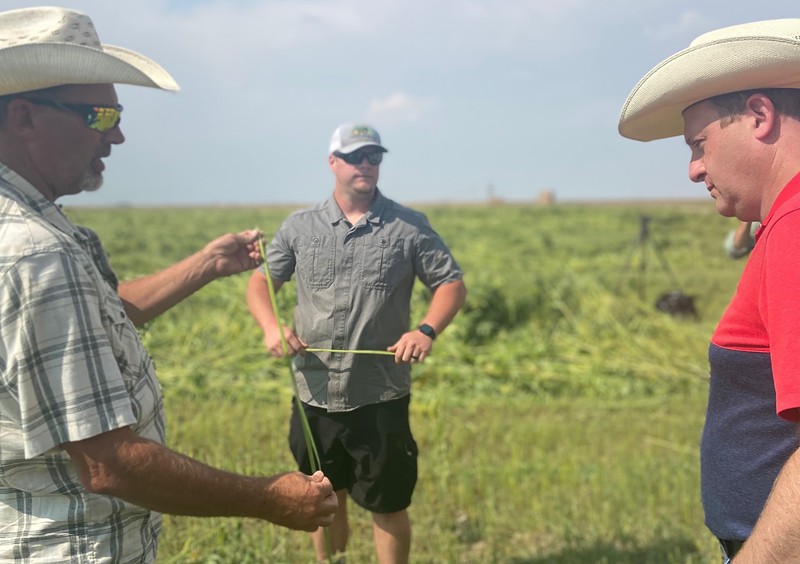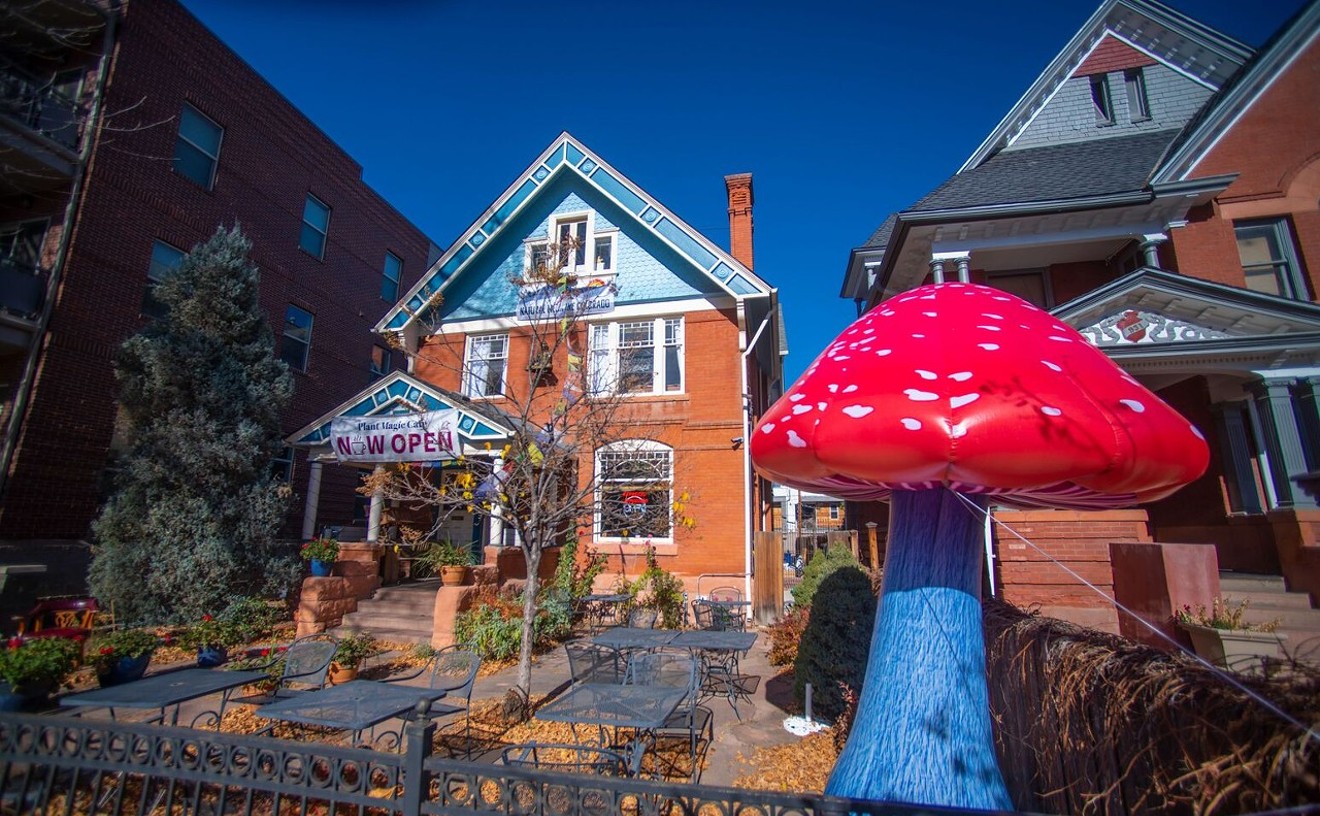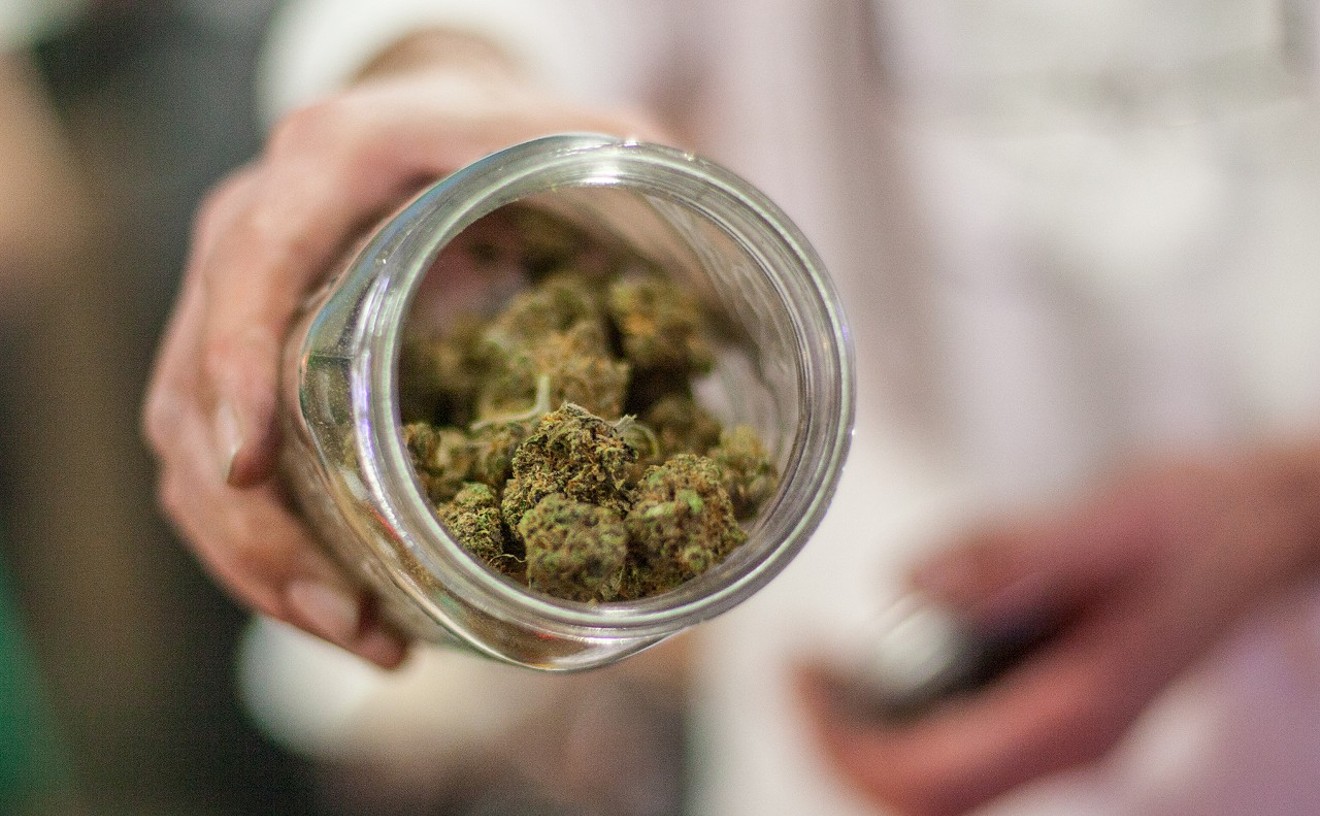Patagonia, a popular brand of outerwear, has been employing hemp fabric in its line of workwear clothing for nearly a decade, using the durable fibers to manufacture pants, jackets and overalls for those who get their hands dirty. But because hemp was federally illegal to grow in America until late 2018, all of Patagonia's hemp textiles were sourced from China — until this year.
Under a new pilot program between Patagonia and the State of Colorado, the company secured hemp seeds from China for a farm in the San Luis Valley that will eventually produce hemp that will be used to make fabric. The partnership reflects the ambitions of Governor Jared Polis's administration to create more partnerships between the state's hemp industry and national companies.
"It’s a marquee brand, Patagonia. It's a very good, professional operation. In the San Luis Valley, they’re excited about hemp and crops that bring an interesting and sustainable value," Polis says. "[The partnership] really is great. It brings together our strong outdoor-industry presence, international trade and our growing hemp industry."
Ean Seeb, Polis's cannabis policy advisor, connected the dots after learning that Patagonia was making hemp clothing. His father-in-law, an outdoor-recreation store owner in Michigan and longtime Patagonia buyer, tipped him off about the brand's foray into hemp; Seeb then got to work setting up a meeting between Patagonia representatives and the governor's staff. Denver's annual Outdoor Retailer Show, one of the country's largest outdoor expos, was the ideal place for that.
Polis and his staff were introduced to Patagonia Work Wear director Ed Auman, the man largely responsible for the company's embrace of hemp, during the conference last January, and the wheels quickly started spinning. Wright-Oaks Farms, a family hemp farm in the San Luis Valley, was selected to grow the hemp and oversee the project, with Patagonia's Chinese hemp textile producer shipping seeds and providing expertise on the processing steps, which can get complicated.
"Pretty much all of the hemp textiles to date have come from China. They've been doing it for 1,000 years, so they're the experts on how to grow it, turn it into a fiber and, ultimately, a textile fabric," Auman explains. "Our supplier in China provided the hemp seeds — because that was the big crux, being able to get hemp seeds specific to industrial hemp — so we had to import and ship them to the San Luis Valley."
The partnership could be a win-win for farmers and clothing manufacturers, as hemp requires less water than potatoes, a dominant crop in the San Luis Valley, and is more durable than most clothing fibers.

Governor Polis has been a vocal proponent of hemp since his days as a congressman.
Jacqueline Collins
As an early advocate of legal hemp farming, Colorado has a chance to attract more business from companies like Patagonia that are interested in transitioning toward industrial hemp and away from traditional textiles, plastics and other manufacturing materials, says Polis, who visited the Wright-Oaks farm earlier this year to see the hemp for himself.
"Colorado is a very globally connected place. You have great global companies like Patagonia who are piloting projects here. This is another opportunity to work with an international market, and an international supply chain. We're located right in the middle of the country, so we’re easy to access," Polis explains. "We’re really excited to be working to help build that processing capacity. A lot of it is about getting to that critical mass of production."
While Colorado was one of America's largest hemp producers during the early stages of the plant's legalization, the state still lacks extensive processing capabilities to turn hemp into material for many products. Although hemp is relatively easy to grow and low-maintenance during the cultivation stage, turning it into fiber is a new and complicated process for American manufacturers. Separating hemp fibers from the plant's core requires a machine-heavy technique called decortication, and it must be done in a specific manner to reach Patagonia's clothing standards.
The company's Chinese supplier was all set to send over consultants for the Colorado project, but then the COVID-19 pandemic hit China and America soon after, forcing the consultations to become virtual. Despite the obstacles, the Wright-Oaks farm planted the seeds in the spring, Auman says, and then harvested the 500-acre plot in September.
Since then, processed samples have been sent back and forth overseas as the Colorado team tries to achieve the same quality that Patagonia's used to seeing in China. "We're getting closer to feeling like it's usable to blend into a yarn, but they're still improving decortication and sending samples to China," Auman explains. "We're on the very front end of this."
The San Luis Valley project is the only one of its kind at Patagonia, and Auman hopes to see Colorado become a major hemp textile supplier for the company. The Polis administration would like to see Patagonia's hemp footprint in Colorado expand to 2,000 acres next year, and aspires to create three more similar partnerships between the state's hemp industry and national brands.
Concludes Polis: "The state looks forward very much to the economic development that hemp can bring."












